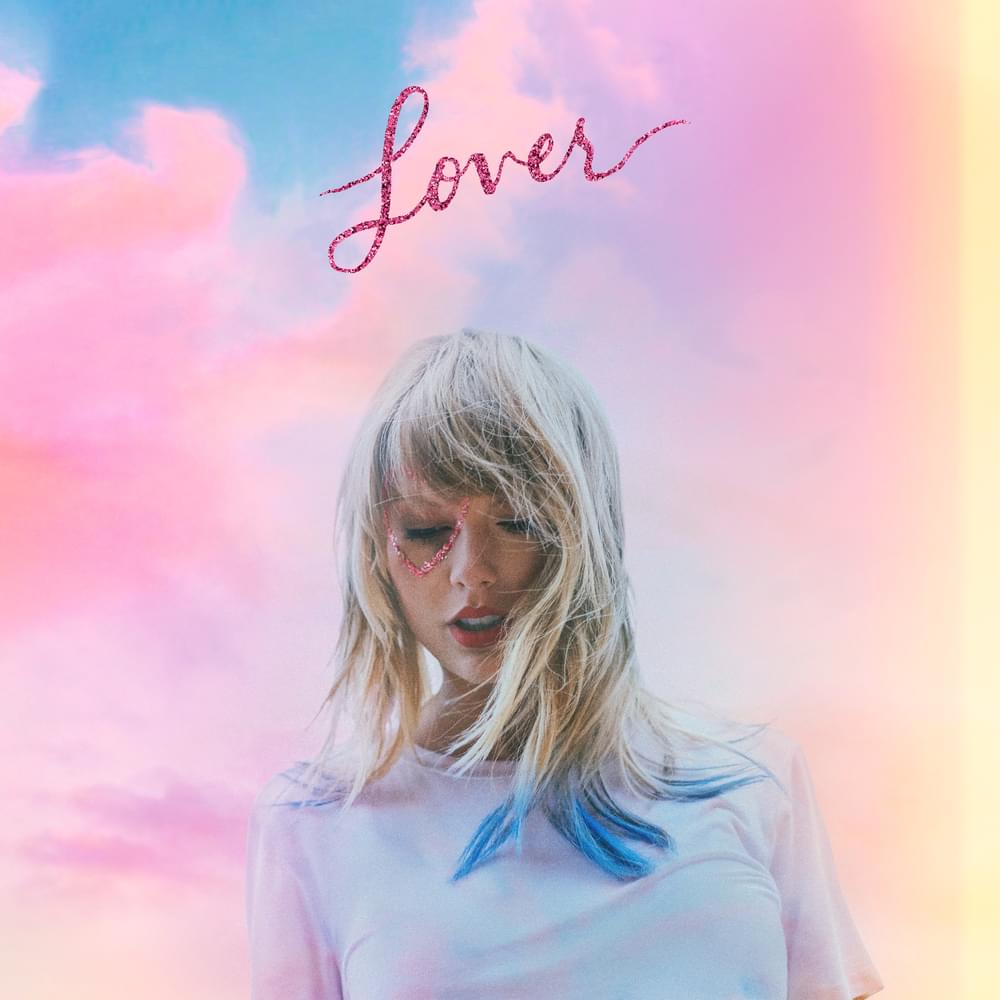 “I wanna be defined by the things that I love.
“I wanna be defined by the things that I love.
Not the things I hate. . .
I just think that you are what you love.” —Taylor Swift
Taylor Swift makes two deliberate choices in her latest album Lover. She chooses love over hate and she chooses self-expression over money. Lover is her seventh full-length studio album, featuring 18 tracks.
Her first choice to focus on love over hate is made clear through the album’s marketing and imagery. Swift’s persona in her previous album Reputation was dark and vengeful, using a snake as a recurring image. In the first single of Lover, the snake transforms into a butterfly, a symbol of new beginnings. Pastels and bright colors replace the darkness of previous video and artwork. Hate is no longer an acceptable attitude in Swift’s music. The closest she gets to her previous persona is indifference toward a past lover in “I Forgot You Existed.”
Lover ends with Swift summarizing the choice to focus on love. She ends with the words, “You are what you love.” Her conclusion aligns with the thoughts of Christian Philosopher James K. Smith, whose book “You Are What You Love: The Spiritual Power of Habit” argues that our desires are formed by unconscious habits rather than rational thought. Swift understands the importance of desires in shaping her character.
Her second choice on Lover is to choose self-expression over money. Since 2012, Taylor Swift has partnered with blockbuster producers Max Martin and Shellback to create some of her biggest hits. “We Are Never Getting Back Together,” “I Knew You Were Trouble,” “Blank Space,” “Style,” “Shake It Off,” “Bad Blood,” “Wildest Dreams,” “Ready For It,” and “Delicate” are all co-written and produced by this Swedish duo.
When a song is written by a team of songwriters, the artist gives up the opportunity for self-expression as others edit and influence the message. For Lover, Swift deliberately chose to take back more control of the songwriting, even if it meant she wouldn’t make as much money.
To be clear, Lover is still very much a pop album with many of the tracks including a co-writer or two. Taylor Swift has not moved toward complete self-expression and still attempts to provide music that a mass audience would enjoy. However, there are tracks that would not have been included in previous Taylor Swift albums. For example, the title track “Lover” is written solely by Swift and sounds like a 1950s doo-wop ballad with muted bass and reverb on the snare. “Soon You’ll Get Better” is a heartfelt expression of Swift dealing with her mom’s second fight with cancer. And the final song, “Daylight,” allows the artist to reflect on her desire to be defined differently.
Lover features two large shifts in Taylor Swift’s career. She is shedding her previous persona of a dark and vengeful person, looking to be defined as a lover, not a hater. And she is taking more creative control of her music and image so she can be more self-expressive. While there is a risk that her music will not be as popular as before because she is working more independently, it’s a risk she is willing to take. As listeners hear Lover and reflect on the changes they see in Swift, they can be inspired to consider what personal changes might go against cultural expectations and lead to a more fulfilled life. After all, according to James K. Smith and Taylor Swift, “You are what you Love.”
Click here to read a version of this article published by The Banner on September 17, 2019.
